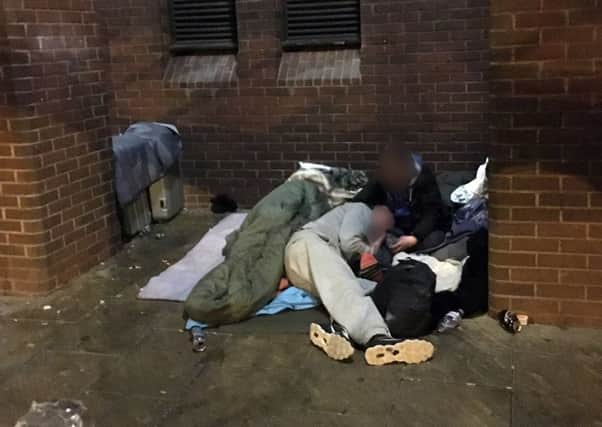LETTER: Homeless people are individuals with complex problems


For the past five years I have been visiting rough sleepers around Chesterfield, in my capacity as a Salvation Army officer, between midnight and 1.30am. I also visit, in response to phone calls during the week, to check on rough sleepers, and address the concerns of the public and other agencies. During this period I have learned things that have changed some of my attitudes. Firstly, rough sleeping is not caused by one thing in particular but by many different issues. If you have ten rough sleepers you have ten individuals with a complex mix of problems. Some are not homeless but clearly make a lot of money by appearing to be so. It cannot be called begging because they do not always ask.
Others have accommodation but lose it for different reasons which may or may not be their own doing. Someone told me recently that he would only take accommodation on his conditions which were that he was allowed to smoke cannabis whenever he liked.
Advertisement
Hide AdAdvertisement
Hide AdOthers have played loud music through the night and faced eviction. Yet others have grown accustomed to this way of life and continue to choose this lifestyle. Still others are struggling to come to terms with the culture that they find themselves in through no fault of their own.
These are all individuals with different problems.
LETTER: Article features ‘spongers’
LETTER: Well done for raising homelessness issue
As far as Beetwell Street is concerned, I visit on a regular basis and, over the years, the numbers have fluctuated. Sometimes there are only a few but on occasions there have been more than 12 people.
There are other locations in the town where I visit those who regularly sleep rough to see if there is anything I can do to help but there is only so much that you can do.
However, there have been occasions people have come up to me in the town and thanked me for a cup of soup or a blanket given in the past and told me how this simple act of compassion helped them to turn their lives around. The idea is not to create dependency or solve their problem but to signpost them to agencies that help them maintain independence whilst supporting them. Pathways, for example, has an excellent record for placing people in accommodation providing they are prepared to accept the help and support offered.
Advertisement
Hide AdAdvertisement
Hide AdFencing Beetwell Street off will only move the problem elsewhere and I have to say that some of the regulars that I visit have moved away because of the risk of violence from newcomers.
This is a complex problem and I’m afraid it will always be with us as old faces go and new faces appear. The argument that you can only help those who want to help themselves has some credence but we also need to support those who engage with the relevant authorities.
The idea that nobody cares is both offensive and misleading. I have worked with many caring people in Chesterfield and there are many places where free food is available. However, I have come to the conclusion that free food is not always the answer as it can lead to a state of dependency where the people you feed today you will still be feeding in ten years time. General Andre Cox reinforced that The Salvation Army’s stance has always been that we give a ‘hand up’ and not a ‘hand out’.
I am pleased to say that many who work in this sector from different churches are now communicating with each other and with the local council and police in an effort to solve individual problems and we are proud to be part of this. However, as I said before we can only do so much.
Ray Baynes
Territorial envoy
Chesterfield Salvation Army